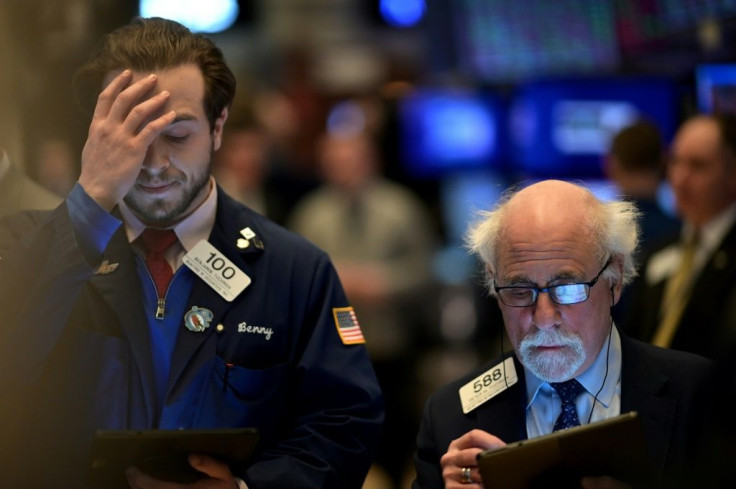Dow Falls 2% As US Stocks Sell-off Deepens On Virus Fears

A sell-off on Wall Street accelerated Tuesday afternoon as the Dow slumped more than two percent on mounting worries over the coronavirus.
Near 1845 GMT, the Dow Jones Industrial Average stood at 27,390.27, down 2.0 percent or about 570 points.
The broad-based S&P 500 shed 1.9 percent to 3,165.03, while the tech-rich Nasdaq Composite Index dropped 1.7 percent to 9,067.84.
Tuesday's declines add to the toll after major indices slumped more than three percent Monday in a rout precipitated by the spread of the virus beyond China.
The declines came as US companies cited potential coronavirus impacts, including less spending from tourists and supply chain problems.
"Bit by bit, US investors are seeing the prospects for global growth diminish," said Gregori Volokhine of Meeschaert Financial Services.
"With the news of the last three or four days, it's hard to be optimistic."
Mastercard slumped 5.3 percent as it forecast that first-quarter sales growth would be two to three percentage points below its prior projection due to the hit to cross-border traffic and e-commerce from the coronavirus.
Macy's dropped 4.9 percent as it warned that the coronavirus was a concern to its supply chain and sales from overseas tourists. But company executives said it was too soon to estimate any hit from the outbreak.
United Airlines shed 6.0 percent as it withdrew its full-year profit forecast, citing uncertainty from the virus. United has lost 100 percent of its near-term travel demand to China and about 75 percent of demand to the rest of its trans-Pacific routes.
But Dow member Home Depot climbed 0.7 percent after reporting higher fourth-quarter earnings following a 5.2 percent jump in comparable sales, topping estimates.
© Copyright AFP {{Year}}. All rights reserved.





















